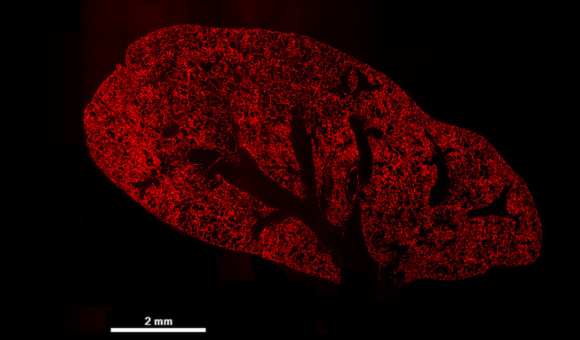
Researchers at UT Southwestern are working to bring in vivo gene editing to the fore. Through rational engineering of lipid nanoparticles, this collaborative team developed a way to effectively target specific organs in the body to precisely deliver therapeutic cargo, including gene-editing molecules. Their research demonstrated that a one-time treatment with their nanoparticles resulted in durable gene editing in mouse lungs for nearly two years. What’s more, their technique showed promise in correcting a mutation present in a currently untreatable form of cystic fibrosis in several models of the disease. The research was recently published in Science.
